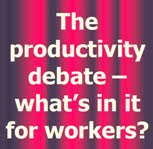Alternative Welfare Working Group
FINAL REPORT RELEASED TODAY
 |
| "Poverty, rather than dependency, should be the focus of welfare reform," |
New Zealand needs to invest more resources in the next generation by addressing income, housing, health and education needs in the present, says Welfare Justice - the Alternative Welfare Working Group. The group releases its final report, Welfare Justice for All today on Thursday 9 December.
“Welfare reform should be based on the relentless pursuit of well-being,” says Welfare Justice Chair Mike O’Brien.
The government needs to focus on addressing poverty and inequality, especially among the inherently voiceless in this debate - the children of beneficiaries, says the Report. The group challenges the government's preoccupation with paid work, saying the work of caring for children and others also needs to be recognised.
"Poverty, rather than dependency, should be the focus of welfare reform," says Dr O'Brien. The increasingly punitive culture of Work and Income was also a focus of comments through meetings and submissions.
The authors of the 164-page report: Mike O’Brien, Sue Bradford, Paul Dalziel, Māmari Stephens, Muru Walters and Wendi Wicks - were asked by Catholic social justice agency Caritas, the Social Justice Commission of the Anglican Church and the Beneficiary Advocacy Federation of New Zealand to write an Alternative Report on Welfare Reform. The Commissioning Groups were concerned that participation by the community sector in the Welfare Working Group process not become justification for conclusions in the final report which have no endorsement from most of the community sector.
The report, which is being released on the eve of Human Rights Day, follows six months voluntary work by the six appointed members and a team of supporters from the church, community and academic sectors, accomplished on less than 3 per cent of the government-appointed Welfare Working Group’s original budget of $1.1 million, including public meetings, submissions and research. Their reflections and recommendations are a significant contribution from the Church, community and academic sectors to the welfare debate Social Development Minister Paula Bennett called for at the Welfare Working Group Forum in June.
Welfare Justice Chair Mike O’Brien and members Sue Bradford, Māmari Stephens and Wendi Wicks will be available to speak to the media at the Catholic Cathedral launch, or by arrangement.
Download report - PDF
Download report - Word
Visit the Welfare Justice - the Alternative Welfare Working Group webpage
.png)

















